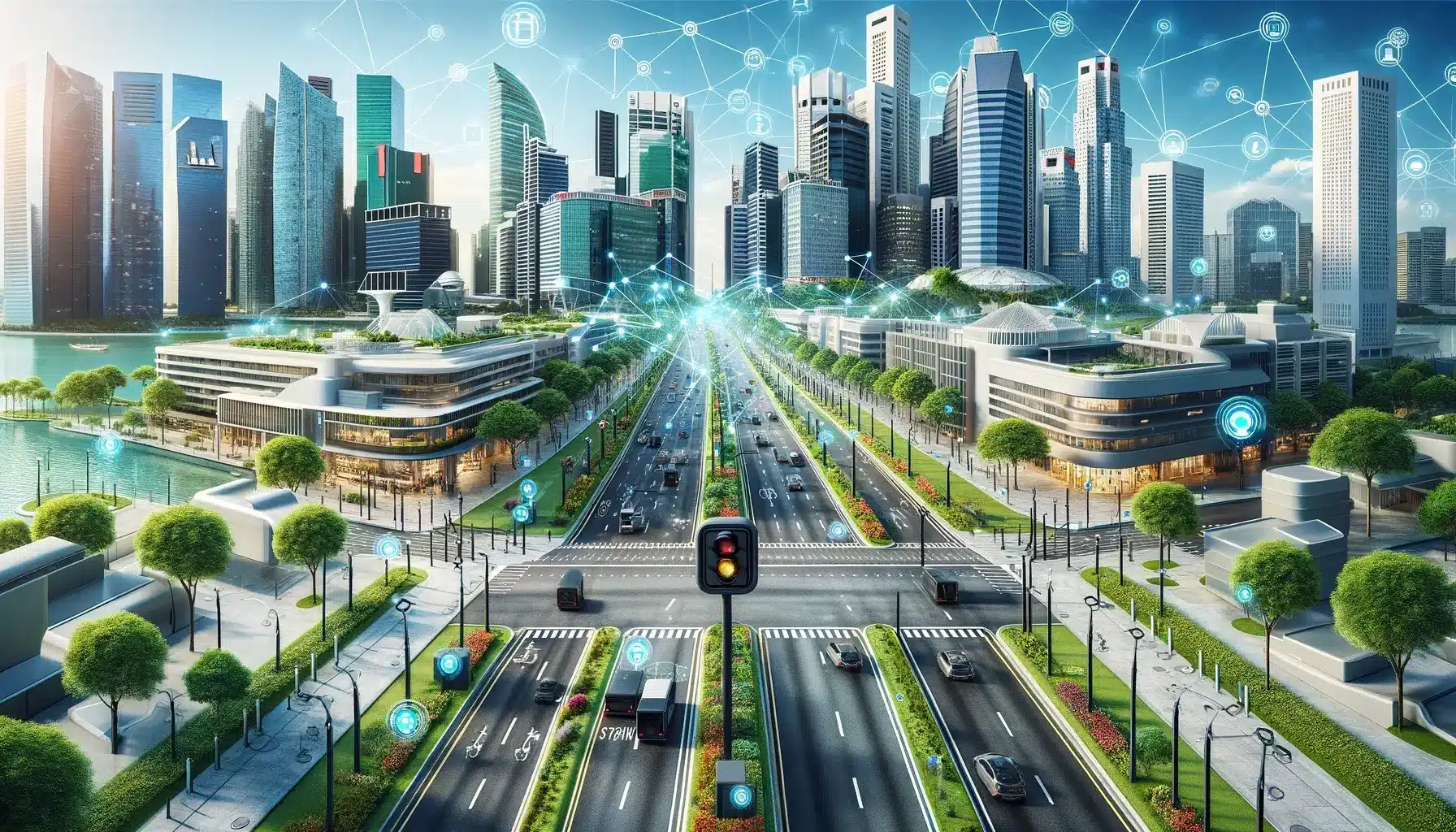Introduction to Smart Cities
Imagine a city where traffic flows smoothly, energy consumption is optimized, and public services respond to your needs in real-time. This isn’t the stuff of science fiction; it’s the reality of smart cities. At their core, smart cities leverage advanced technology to create urban environments that are not only efficient but also sustainable. As population growth and urbanization continue to rise, the need for innovative solutions becomes increasingly urgent.
Smart cities harness various technologies to improve quality of life for residents while minimizing environmental impact. From connected transportation systems to intelligent waste management, these urban spaces are evolving into hubs of sustainability and connectivity. Let’s dive deeper into what makes smart cities tick and explore how they’re shaping our future urban experience.
The Benefits of Smart Cities
Smart cities bring a myriad of benefits that reshape urban living. Improved efficiency stands at the forefront. By leveraging technology, municipalities can streamline services like waste management and public transportation.
Enhanced quality of life is another significant advantage. Smart solutions create safer environments through better surveillance and emergency response systems, allowing citizens to feel secure in their communities.
Sustainability plays a crucial role as well. Energy-efficient buildings and smart grids reduce carbon footprints, promoting eco-friendly practices across urban landscapes.
Economic growth also thrives in these innovative ecosystems. With increased connectivity comes new job opportunities in tech sectors and rising investments in infrastructure projects.
Citizen engagement transforms how residents interact with their city governments. Through apps and platforms, people can voice concerns or access information quickly, fostering a sense of community ownership over local issues.
Key Technologies Driving Smart City Development
Smart cities are powered by a range of innovative technologies that enhance urban living. At the forefront is the Internet of Things (IoT). Sensors and devices communicate seamlessly, providing real-time data to improve city services.
Connectivity solutions like 5G networks play a crucial role. They enable rapid data transmission, allowing for smarter traffic management and instant updates on public transport schedules.
Another key player is cloud computing, which supports vast amounts of data storage and processing capabilities. This infrastructure allows cities to analyze trends over time, optimizing energy usage or waste management.
Artificial intelligence also transforms how municipalities operate. AI-driven analytics help in predicting maintenance needs for infrastructure before issues arise. With these advancements, smart cities can evolve into more efficient, sustainable places to live and work while enhancing residents’ quality of life.
IoT and Connectivity Solutions for Smart Cities
The Internet of Things (IoT) is a game-changer for smart cities. It connects devices, enabling seamless communication and data sharing throughout urban environments.
Smart sensors monitor traffic patterns, air quality, and energy usage in real-time. This data helps city planners make informed decisions that enhance sustainability.
Connectivity solutions like 5G networks amplify the effectiveness of IoT devices. Faster speeds and lower latency mean quicker responses to urban challenges.
Imagine smart streetlights that adjust brightness based on pedestrian movement or waste bins signaling when they need to be emptied. These innovations streamline operations while reducing resource consumption.
Moreover, enhanced connectivity fosters collaboration among various sectors—government, businesses, and residents all benefit from improved services tailored to their needs. With robust IoT frameworks in place, communities can thrive more efficiently than ever before.
Data Analytics and Artificial Intelligence in Smart Cities
Data analytics and artificial intelligence (AI) are vital for the evolution of smart cities. These technologies transform massive amounts of urban data into actionable insights.
With AI algorithms, cities can predict traffic patterns, manage energy consumption, and enhance public safety. For instance, real-time analysis helps optimize traffic signals, reducing congestion and emissions.
Public services also benefit from smarter decision-making. By analyzing citizen feedback through social media and surveys, governments can tailor services to meet residents’ needs effectively.
Furthermore, predictive maintenance powered by AI ensures that infrastructure remains functional longer. Sensors embedded in roads or transit systems alert city officials about potential issues before they become major problems.
The synergy between data analytics and AI fosters sustainable urban environments where resources are allocated efficiently. As these technologies advance, the possibilities for improving daily life in urban areas continue to expand dramatically.
Case Studies of Successful Smart City Implementations
Barcelona stands out as a prime example of smart city innovation. The city’s deployment of IoT sensors throughout its public spaces has transformed urban management. From smart lighting that adjusts based on pedestrian traffic to waste bins that signal when they’re full, Barcelona has enhanced efficiency and sustainability.
Singapore is another leader in this realm. Its Smart Nation initiative leverages data analytics and AI to improve transportation systems. Real-time information helps residents navigate the city seamlessly, reducing congestion while promoting eco-friendly transport options.
In North America, San Diego has made strides with its connected streetlights network. This system not only saves energy but also collects data for improving urban planning initiatives from parking availability to air quality monitoring.
These cities showcase how technology can reshape urban life, creating environments that are both livable and sustainable while enhancing the overall experience for their inhabitants.
Challenges and Concerns with Building a Smart City
Building smart cities comes with a unique set of challenges. One major concern is data privacy. As urban technology integrates into daily life, vast amounts of personal information are collected. Ensuring that this data remains secure and used ethically is paramount.
Another issue involves the digital divide. Not all residents have equal access to technology or the internet. This can lead to inequalities in how people benefit from smart city initiatives.
Infrastructure costs also pose significant hurdles. Upgrading existing systems requires substantial investment and long-term planning, which can strain municipal budgets.
Additionally, public acceptance plays a critical role in implementation. Without community buy-in, even the most innovative solutions may face resistance.
Environmental considerations cannot be overlooked. Balancing technological advancements with sustainable practices is essential for creating truly livable urban spaces.
Future Outlook for Smart Cities
The future of smart cities holds immense promise and opportunity. As urban areas continue to grow, the need for innovative solutions becomes increasingly critical. Emerging technologies are set to redefine how we live, work, and interact within our communities.
Advancements in IoT will enhance connectivity across various city services. From intelligent traffic systems that adapt in real-time to energy-efficient buildings equipped with smart meters, the integration of urban technology continues to evolve. Enhanced connectivity will lead not only to improved infrastructure but also a more engaged citizenry.
Data-driven decision-making is expected to become even more integral as analytics tools refine city management strategies. Artificial intelligence will play an essential role by improving public services like waste management and emergency response systems through predictive insights.
Sustainability remains at the forefront of these developments. Cities are now prioritizing green initiatives that promote renewable energy sources and reduce carbon footprints. Smart grids powered by clean energy can optimize electricity use while supporting electric vehicle charging networks seamlessly integrated into everyday life.
However, navigating privacy concerns and ensuring equitable access remain crucial challenges that must be addressed as cities evolve technologically. Public trust hinges on transparent processes when it comes to data usage and surveillance practices.
As urban centers embrace this digital transformation journey, collaboration among government entities, private sectors, and residents will be vital for shaping sustainable environments where everyone thrives together in harmony with innovation at their fingertips.




